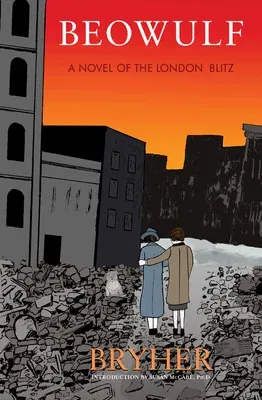Eighty years ago, the city of London became the target of a relentless
bombing campaign by Nazi Germany during WWII that has come to be known
as the Blitz. From the period between 1940-1945, over 20,000 Londoners
were killed and half a million lost their homes. Bryher, who lived
through a good part of those years in London, has provided us with an
indelible portrait of day-to-day life from a variety of voices and
perspectives from its regular citizens, humanizing the political
backdrop of war with their pluck, humor, endurance, and courage. Her two
female protagonists who own and operate the local teashop, The Warming
Pan, become the heroes of the novel as they work to provide food and
hospitality to the embattled community. The Beowulf of the title, far
from the epic hero of the fundamental Anglo Saxon legend, is the name of
the teashop's mascot: a plaster sculpture of a bulldog that they
discover in the rubble after a heavy bombing raid that they make the
centerpiece of their cafe. It becomes a symbol in turn for the fortitude
and patient suffering of those innocent civilians caught in the
maelstrom of war. Certain to appeal to all fans of WWII fiction, Beowulf
is an unforgettable reminder of what it was like during that crucial
time in Britain's and the world's history

